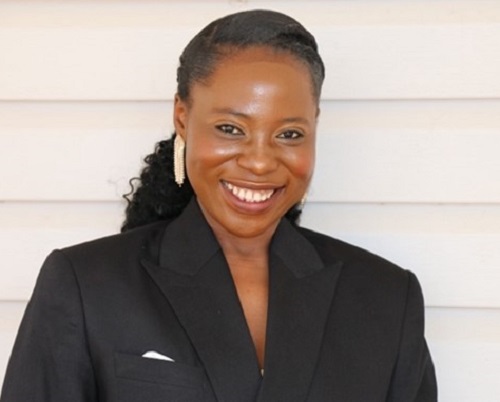Class of 2025 IPAC Academic Fellows

Mary Adelua
Mary Adelua is an MA student in Communication Studies at Texas Tech. Her research focuses on the ways that the 2023 general election gave rise to more intense tribal wars especially amongst the Igbo and Yoruba tribe in Nigeria. It has fast escalated into intertribal conflicts, prominently more visible on social media platforms, hindering constructive conversations and unity and posing a significant threat to national peace and progress. With Nigeria's diverse population of over 250 tribes, urgent measures are needed to stabilize peace and unity between these major tribes to enhance national cohesion and advance the country. This research aims to investigate triggers of inter-tribal conflicts in Nigeria by analyzing communication patterns on social media platforms like Twitter. It will identify these triggers, and its negative impacts. This study will develop communication strategies, and targeted interventions to address and mitigate inter-tribal tensions. This research project will recommend policies to combat online hate speech, promote digital peacebuilding, and prevent the misuse of social media for divisive purposes. The result of this research will offer useful solutions to foster a safer and more inclusive online environment that supports peace and harmony between the Igbo and Yoruba tribes, thereby contributing to national unity and progress.

Laura Calkins
Laura Calkins is Associate Professor of History at Texas Tech University. She studies food insecurity arising in the context of political or armed conflict has been less studied than its obvious importance might indicate. Her current project examines food shortages, food controls, and international relief programs in postwar Asia. As an IPAC Fellow, I will focus on Britain’s crucial regional hub, Singapore, and links between uncertain food availability in the island and the emergence of violence and political radicalization in the face of colonial re-occupation.

Henry Moncrieff
Henry Moncrieff is a doctoral candidate in the Department of Political Science at Texas Tech University. His research focuses primarily on civil-military relations, peacekeeping, and security studies. His dissertation examines how peacekeeping contributions and US security cooperation intersect with the dynamics of coup propensity. External influences and domestic governance structures shape political stability and security, shedding light on the underlying factors that influence military insubordination and the maintenance of civilian control in the developing world.

Christopher Netek
Christopher Netek is a PhD student in the Department of History at Texas Tech. I study the radical nationalist political movements of Weimar Germany. My focus is on those groups that functioned as a pole of attraction which was distinct from the NSDAP. Of particular interest to me is the grouping of radical nationalists which have been broadly termed the Conservative Revolutionaries. These men were generally war veterans who opposed the parliamentary democracy of the Republic and believed that liberalism brought with it a cultural and spiritual rot which weakened the soul of the nation. At the same time, they opposed the return of the monarchy and advocated for an authoritarian leader who would embody the will of the German people. They were unique among the German nationalist right in that they advocated for an alliance with the Soviet Union as a bloc against Western Capitalism but were anti-Marxist and did not oppose some aspects of the free market. Radical nationalist veterans believed in the cleansing power of violence and advocated a scouring of Germany. These veterans witnessed the tragedy that was the loss of the First World War and longed for a restoration of German prestige and power. Studying this milieu is important because it represents a relatively understudied aspect of the movements which contributed to the ultra-nationalist zeitgeist preceding the rise of Hitler and the descent into the Second World War.

Sabrina Thomas
Sabrina Thomas is Associate Professor of History at Texas Tech. My work on American fathered children born from war contributes directly to the study of peace and conflict by examining the human consequences of war and occupation and the specific ways that international conflict disrupts accepted notions of race, gender, and nationality. My first book, Scars of War: The Politics of Paternity and Responsibility for the Amerasians of Vietnam, considered why US policymakers agreed to recognize the American paternity of Amerasian children born from the Vietnam War, but failed to grant them US citizenship. My next project, The Soul of Blood and Borders: Brown Babies, Black Amerasians and the African American Response, extends this analysis to examine the disparate ways that African Americans responded to Black German children born during the US occupation of Germany and Black Amerasians born as a result of the American War in Vietnam. It interrogates the contradicting efforts of African Americans to recognize Black German children as “Black” victims of post-Nazi Germany in need of saving through adoption by African American families, and the rejection by African Americans of Black Amerasian children as Asian and foreign. By considering the transnational and transracial complexities wrought by children born of occupation and war, this project reveals how the most intimate spaces of both peace and conflict can have enormous consequence for families, communities, and nations.

Nila Zarepour-Arizi
Nila Zarepour-Arizi is a PhD candidate in the Political Science Department at Texas Tech University. Her research centers on the intersection of women, peace, and conflict. Specifically, she studies the influence of female executives on states' foreign policy and conflict behavior. Her work includes analyzing the role of women in legislatures and their impact on contributions to UN peacekeeping missions, comparing military spending between male and female leaders, and examining how external threats influence women's rise to top executive positions. Her dissertation investigates how women in executive roles, such as government leaders and ministers, affect the dynamics of interstate militarized conflicts, civil war occurrences, and economic sanctions. Specifically, she aims to use survey experiments to delve into how gender influences economic sanction dynamics.
Institute for Peace & Conflict
-
Address
Texas Tech University, Box 41013, Lubbock, TX 79409 -
Phone
(806)834-0727 -
Email
ipac@ttu.edu
